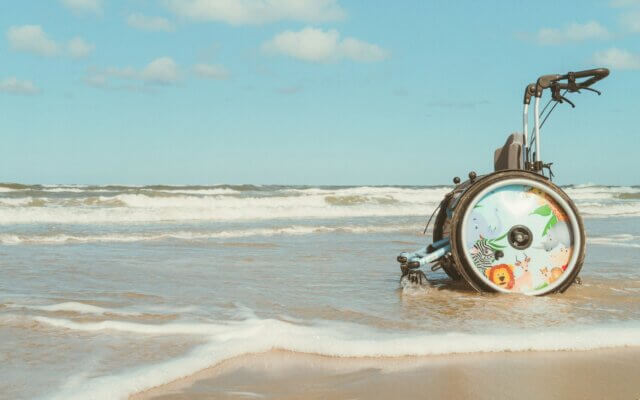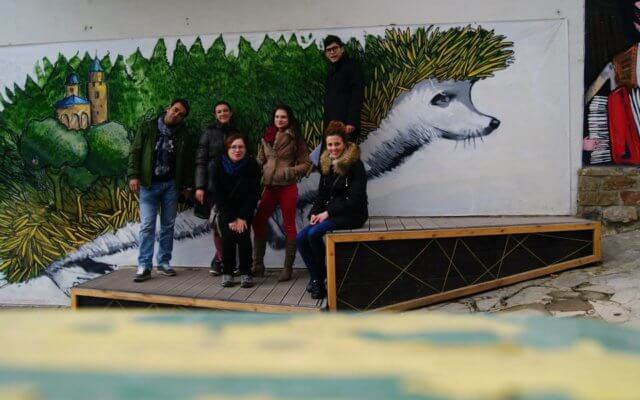Programme & action: ERASMUS+: Youth programme, Key Action 1: training course
Dates: 27 November — 4 December 2020
Venue: online
Please read the project description on its SALTO page.
Participants/team: 4
Participating countries: Czech Republic, Germany, Greece, Hungary, Italy, Lithuania, Republic of North Macedonia, Spain, Turkey
Hosting organisation: NaturKultur e.V.
Project report:
Crisis management in Youth work training was conducted online through Zoom due to the COVID19 situation.
The training lasted 8 days when 36 participants from 9 different countries met every day for 3 hours.
The training was particularly focused on crisis management related to the COVID pandemic mainly in the field of youth work.
The main objective of the training was:
1) Informing and training 36 participants about crisis management, with the aim of raising the quality of their youth work.
Other objectives of the project were:
2) To develop a resilience among youth workers participating on the training course, in order to improve their satisfaction in their job and prevent professional burnout.
3) To Identify and address the challenges that youth workers face in their work.
4) To create space for sharing knowledge and exchanging experiences and good practices with the atmosphere of common understanding between youth workers representing different cultures, working styles and coming from 9 different countries.
5) Increasing the knowledge and skills of youth workers from the 9 European countries, with emphasis on youth workers from small and medium-sized NGOs, newly established associations and informal groups of young people active in youth work.
Training consisted of 2 main sessions every day:
- 1st session – official opening, introduction of the team, getting to know each other, talking about our fears, expectations and contributions
- 2nd session – introduction to crisis management (crises models)
- 3rd session – NGO fair – crisis situations and practices
- 4th session – resilience for youth workers
- 5th session – crises situations on Erasmus+ projects (world cafe)
- 6th session – soft skills in crises management (guest trainers)
- 7th session – crisis management in Corona times simulation (CM cycle)
- 8th session – crisis management in Corona times
- 9th session – crisis management challenges and solutions – peer learning
- 10th session – questions and answers with experts
- 11th session – creating brochure about crisis management
- 12th session – youthpass, final evaluation, closing ceremony
Training was held by Zoom and we also used other online tools for sharing our ideas and points of view such as PADLET.COM and for example World Cafe online method.
We were working in small groups most of the time and reflecting on crisis management of situations arising in youth work and due to the pandemic, such as how the pandemic has been influencing our lives, how we and our organizations have been dealing with it, what we have learnt and what we could do differently next time.
For example, in small groups we were given scenarios which we discussed and then we tried to find the best way of dealing with them or we just shared our personal experience and points of view. Then one of us presented our ideas to the rest of the participants.
We discussed the different stages defined by the model of crises.
We touched on topics such as resilience, emotional intelligence, self awareness, soft skills, time management etc.
We also had the opportunity to join workshops with three professionals (Dagna Gmitrowicz, Marcus Vrecer, Antonio Jovanovski) and ask them questions about their opinions and experiences during the pandemic.
The outcome of this project was to put forward our ideas and share our personal experience with the purpose of creating a brochure about crisis management.
From my perspective, all the training was run surprisingly smoothly without any technical or other issues, and the whole learning process achieved the set objectives.
I would say that I learnt a lot about crisis management and its stages based on the content of the training, (self-) reflexion and listening to others’ experiences.
We are still in a pandemic, however, during the training we came up with many ideas about how we can deal with the crisis situations, what is important and what we could do differently next time.
Personally, I see the benefits of this training as being that we had an opportunity to share our experience, feelings, opinions, points of view, to learn from each other, to build a connection with participants from different countries, and to realize that we are all in the same boat.
Additionally, I really appreciated the workshops with the professionals and the opportunity to see their point of view.
Furthermore, this training showed me that online communication can be a useful tool for organizing small workshops or even Erasmus+ projects and building connections between youth workers and participants.
Overall, I really appreciate that I had the opportunity to participate.
In terms of the project being run online, I was happy with everything: the organization, activities, sessions, and technical support of this training, and my participation was definitely worth it for me.
Eliška Antošová


